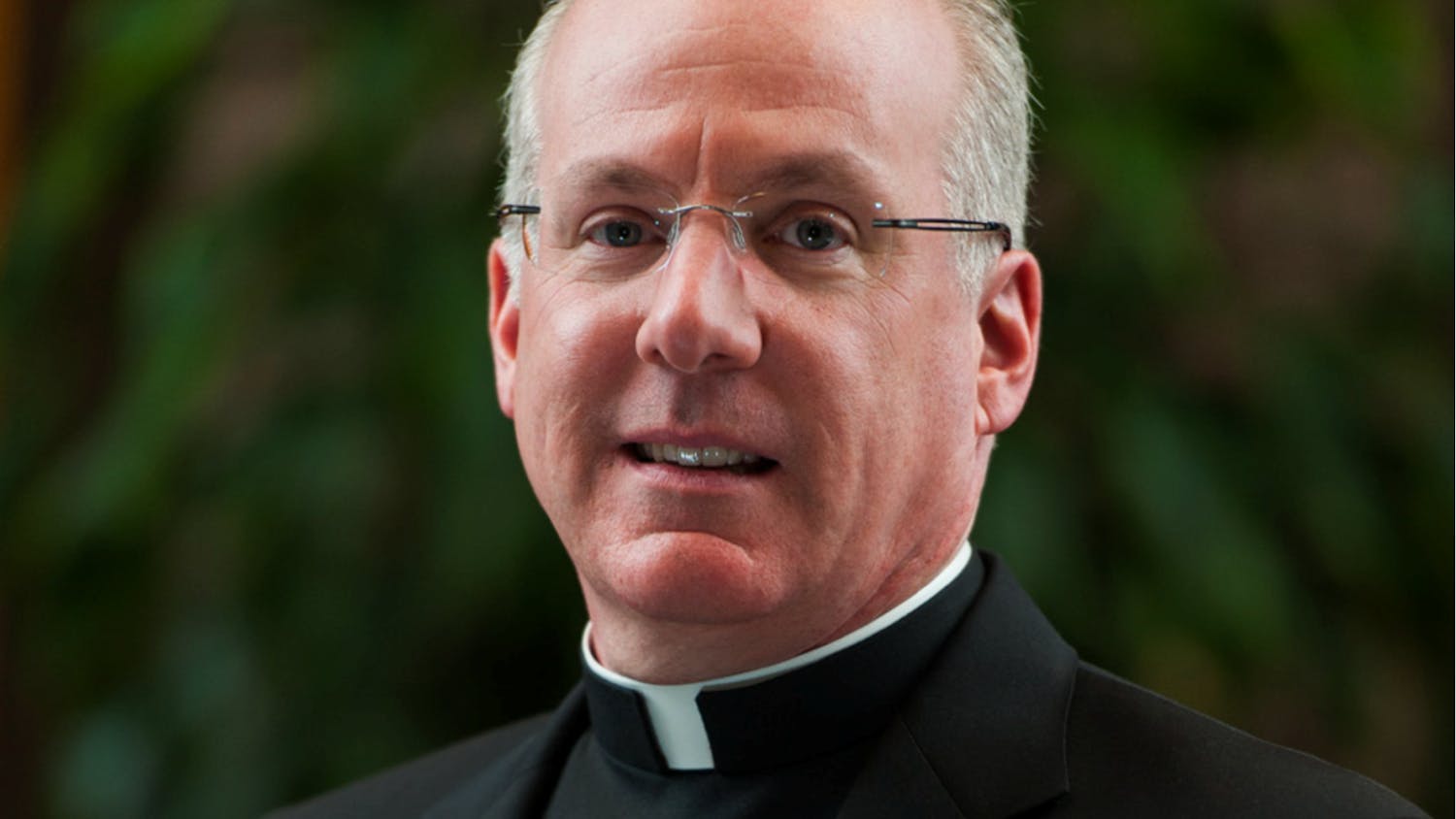[caption id="attachment_17099" align="aligncenter" width="838"] Andrew Cuomo, governor of New York, unveiled his plan to take steps toward free tuition. Photo via Flickr/Zack Seward.1200[/caption]
New York has taken one step closer to passing a tuition-free college program for low and middle-income families, leaving Seton Hall students considering how this program would affect them.
Tuition-free college is not new to the headlines. This movement has caught the attention of politicians, educators and students this past year. Sen. Bernie Sanders from Vermont focused a big part of his presidential campaign on making college tuition free. However, it was the governor of New York, Andrew Cuomo, who on Jan. 10 unveiled a plan to put this into action.
Cuomo called his plan the “Excelsior Scholarship program” and according to his proposal it would provide free tuition to two- or four-year state schools beginning in fall 2017 to families earning less than $100,000 annually.
New York’s plan would only be viable for state schools. New Jersey does not have a statewide plan for tuition-free college. However, if a plan like the Excelsior program were to take off and influence other states, this could be a reality in the future.
Dr. Alyssa McCloud, vice president of Enrollment Management, is familiar with a lot of the various programs being proposed across the country. “In general, most of these programs, even some suggested during the presidential campaign, are good and helpful,” McCloud said. “But in actuality these programs are designed to help people who have a certain income level. Many people don’t realize that.”
McCloud warrants that context is key when analyzing the proposed tuition-free college programs. She says when the public hears about these programs they sound revolutionary, but in actuality because of her position at SHU she knows families at a certain income level are already getting a high amount of aid from federal and state governments.
While McCloud points out that a tuition-free college program would not directly affect Seton Hall University, a private institution, there is a small possibility that it could indirectly affect the number of people who would choose to attend SHU versus a free public school option.
Gabriella Bryce, a sophomore education major, grew up in Philadelphia, Pa. Neither of her parents graduated from college and she was determined to be a first-generation student. However, she says that finances were tight and it was not a guarantee. Her mother’s income consisted of disability checks. She would have to work hard for it.
“I knew that I wanted to come to college and I knew whatever I had to do I was going to do it,” Bryce said.
She said that if Pennsylvania offered an Excelsior type program she would have taken it over attending Seton Hall. Bryce said her current bill for tuition and living off campus totals about $9,000 after aid and scholarships. Even at $9,000 she still said she would attend a public university for free if given the option.
“People in a certain income bracket should have free college options. The price tag discourages a lot of people from having a higher education opportunity,” Bryce said.
Bryce said if someone told her as a girl that she could definitely go to college, regardless of her financial circumstances, she would be ecstatic.
“Every child has dreams. And those dreams most likely require college,” Bryce said. “You have something to dream for with a tuition-free program.”
McCloud added, “These programs are definitely good. We have to start somewhere and I fully support legislators coming up with programs.”
On the other hand, for Emily Hoff, a senior journalism major, a tuition-free option would not have changed her decision to come to SHU.
“At Seton Hall you are in a small environment and you get to know more students and professors. You are probably just a number at a public school like Rutgers,” Hoff said. “Seton Hall has helped me a lot and made me who I am so it is definitely worth the price tag.”
“States can’t say they would make private schools free too, but I hope they can find some equivalent way to provide additional benefit at a private school,” McCloud said. “Whether it be extra scholarship or extra grant money, because the goal is access. There is a benefit to private school in terms of quality of interaction, size and admission. I would hate that people would not be able to access that if they want it.”
Siobhan McGirl can be reached at siobhan.mcgirl@student.shu.edu.
Andrew Cuomo, governor of New York, unveiled his plan to take steps toward free tuition. Photo via Flickr/Zack Seward.1200[/caption]
New York has taken one step closer to passing a tuition-free college program for low and middle-income families, leaving Seton Hall students considering how this program would affect them.
Tuition-free college is not new to the headlines. This movement has caught the attention of politicians, educators and students this past year. Sen. Bernie Sanders from Vermont focused a big part of his presidential campaign on making college tuition free. However, it was the governor of New York, Andrew Cuomo, who on Jan. 10 unveiled a plan to put this into action.
Cuomo called his plan the “Excelsior Scholarship program” and according to his proposal it would provide free tuition to two- or four-year state schools beginning in fall 2017 to families earning less than $100,000 annually.
New York’s plan would only be viable for state schools. New Jersey does not have a statewide plan for tuition-free college. However, if a plan like the Excelsior program were to take off and influence other states, this could be a reality in the future.
Dr. Alyssa McCloud, vice president of Enrollment Management, is familiar with a lot of the various programs being proposed across the country. “In general, most of these programs, even some suggested during the presidential campaign, are good and helpful,” McCloud said. “But in actuality these programs are designed to help people who have a certain income level. Many people don’t realize that.”
McCloud warrants that context is key when analyzing the proposed tuition-free college programs. She says when the public hears about these programs they sound revolutionary, but in actuality because of her position at SHU she knows families at a certain income level are already getting a high amount of aid from federal and state governments.
While McCloud points out that a tuition-free college program would not directly affect Seton Hall University, a private institution, there is a small possibility that it could indirectly affect the number of people who would choose to attend SHU versus a free public school option.
Gabriella Bryce, a sophomore education major, grew up in Philadelphia, Pa. Neither of her parents graduated from college and she was determined to be a first-generation student. However, she says that finances were tight and it was not a guarantee. Her mother’s income consisted of disability checks. She would have to work hard for it.
“I knew that I wanted to come to college and I knew whatever I had to do I was going to do it,” Bryce said.
She said that if Pennsylvania offered an Excelsior type program she would have taken it over attending Seton Hall. Bryce said her current bill for tuition and living off campus totals about $9,000 after aid and scholarships. Even at $9,000 she still said she would attend a public university for free if given the option.
“People in a certain income bracket should have free college options. The price tag discourages a lot of people from having a higher education opportunity,” Bryce said.
Bryce said if someone told her as a girl that she could definitely go to college, regardless of her financial circumstances, she would be ecstatic.
“Every child has dreams. And those dreams most likely require college,” Bryce said. “You have something to dream for with a tuition-free program.”
McCloud added, “These programs are definitely good. We have to start somewhere and I fully support legislators coming up with programs.”
On the other hand, for Emily Hoff, a senior journalism major, a tuition-free option would not have changed her decision to come to SHU.
“At Seton Hall you are in a small environment and you get to know more students and professors. You are probably just a number at a public school like Rutgers,” Hoff said. “Seton Hall has helped me a lot and made me who I am so it is definitely worth the price tag.”
“States can’t say they would make private schools free too, but I hope they can find some equivalent way to provide additional benefit at a private school,” McCloud said. “Whether it be extra scholarship or extra grant money, because the goal is access. There is a benefit to private school in terms of quality of interaction, size and admission. I would hate that people would not be able to access that if they want it.”
Siobhan McGirl can be reached at siobhan.mcgirl@student.shu.edu.

Comments




